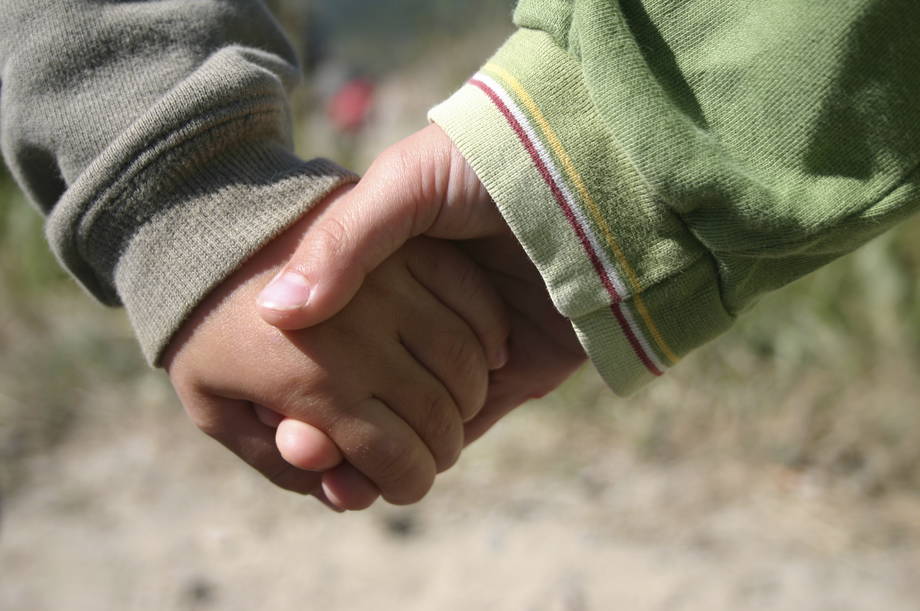Mental health in times of crises

Russia’s invasion of Ukraine can provoke anxiety and fear, even if there is no immediate threat of war. Many also want to help those in need who are in the war zone. The situation affects all of us in one way or another, so the coping skills of yourself and your loved ones are being put to the test.
On this page, we have brought together materials for supporting mental well-being and coping in this crisis situation and for providing help to others.
On this page:
- Do everyday things that support good mental health and everyday coping
- Tools for strengthening mental well-being
- Get involved in volunteering
- Immediate conversational therapy
- Help in dealing with worry caused by the war in Ukraine
Do everyday things that support good mental health and everyday coping
Eat well
Eat a varied diet with lots of vegetables, fruits and berries. The most important thing is variety and moderation; having a piece of chocolate every now and then will not damage your health. Make cooking and eating together a way of spending quality time with friends and family.
Move a lot
Moving makes you feel good. Regular exercise improves self-esteem and helps you to focus, to sleep and to generally feel better. Exercise also helps to keep your brain and other important organs healthy. Exercise in a way that feels natural and enjoyable for you.
Get enough sleep
The mind and brain need sleep: it removes fatigue, restores alertness, and helps to prevent stress and maintain a good mood.
Use alcohol with moderation
Alcohol is often consumed in order to change one’s mood, with some using it to overcome fear or loneliness, for example – but its numbing effect is temporary. Having one glass of wine with your food is an example of moderate alcohol consumption.
Keep in touch with people
Family and friends are important to us. Stay in touch with the people around you. Do not keep your worries to yourself.
Talk about your feelings
Talking about emotions and sharing them with others helps you to maintain good mental health and to cope better during difficult and stressful times. Talking to another person is not a sign of weakness, but rather an excellent way to take care of your own health and well-being.
Accept yourself
Be compassionate to yourself. None of us are perfect. Appreciate yourself for who you are.
Stay present
Mental skills such as mindfulness support mental health. Be aware of your surroundings and your own feelings.
Take care of others
Be friendly, say sorry when you need to, and forgive others when they say sorry. Show compassion. Showing empathy and helping others makes you feel good as well. Taking care of other people is an important part of maintaining relationships. Do some volunteer work or help a neighbour.
Take a break and relax
Change your scenery, take a half-hour lunch break at work or a relaxing evening moment. Even a couple of minutes' break from your tasks can help to reduce stress. Meditation, breathing and relaxation exercises have been found to promote mental health.
Get out into nature
Nature soothes and relieves stress. In nature, our general mood improves and positive mental states are strengthened.
Be active, enjoy life
Take up hobbies, enjoy culture and art. Do what gives you joy and pleasure. Make sure you have enough free time.
Do something that you are good at
What activities are meaningful to you? These can help to reduce stress. Usually, people are good at the things they enjoy doing.
Stay well at work
Meaningful work and good workplace relationships promote mental health. Find ways to promote the well-being of yourself and your colleagues at work.
Be curious and learn something new
Learn, try out new things and set yourself challenges. Learning something new improves self-esteem and supports mental well-being.
Ask for help
None of us are perfect. If you’re having a hard time, ask for help.
Tools for strengthening mental well-being
To strengthen mental well-being, tools have been developed for developing areas such as emotional and awareness skills and interaction and problem-solving skills.
Get involved in volunteering
One of the things that increases well-being the most is the experience of being important to other people. Volunteering supports mental well-being. You can either volunteer yourself or apply for voluntary support. Don’t remain on your own. There are activities on offer from a wide range of organisations.
- As a volunteer, you can help (Finnish Red Cross)
- Supporting the well-being of elderly people (Vanhustyön keskusliitto)
- Immigrants in Finland (Väestöliitto)
There are several organisations through which you can help Ukrainians. The link below provides summary of information on ways to provide help to Ukraine and Ukraine’s neighbouring countries.
Immediate conversational therapy
If you are finding it very difficult to deal with the current world situation, talk to a healthcare professional. Do not remain alone if you have self-destructive thoughts. Call and share your thoughts with someone close to you.
You can also call one of several national telephone hotlines maintained by different organisations or get help from social and crisis services or health care services through the on-call or emergency services available.
- Crisis Helpline (Mental Health Finland) Call 09 2525 0113
- Poikien Puhelin is a helpline telephone and web service for boys and young men. If you want to speak English, call Tuesdays 15:30-18:00 or Thursdays 13:00–15:30 on 0800 94884
Help in dealing with worry caused by the war in Ukraine
The war in Ukraine has shocked many people. From the links below, you can find resources for dealing with worry and concerns related to the war.
- Ukraine crisis may feel disturbing (Finnish Red Cross)
- Coping with worry and uncertainty about the threat of war (Mental Hub)
- How to talk about war with children and youths (The Mannerheim League for Child Welfare)
- Information about anxiety in children and tools to handle the issue, available f.ex. in English, Ukrainian and Russian (Let's cope together, University of Turku, Research Centre for Child Psychiatry)
- Videos in different languages about mental health and applying for support in Finland (YouTube, Turun kriisikeskus)
Materials for professionals who work with people who have fled Ukraine
Supporting the health and well-being of refugees from Ukraine (Migration and cultural diversity)
Instructions for preparing for disruptions and crises have been compiled in the Suomi.fi online service. The guide for the entire population contains information and instructions to help you prepare in advance for various incidents and crises and emergency conditions in advance.




